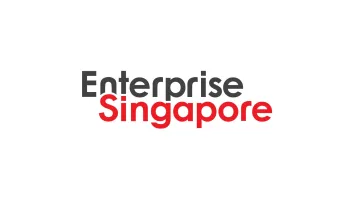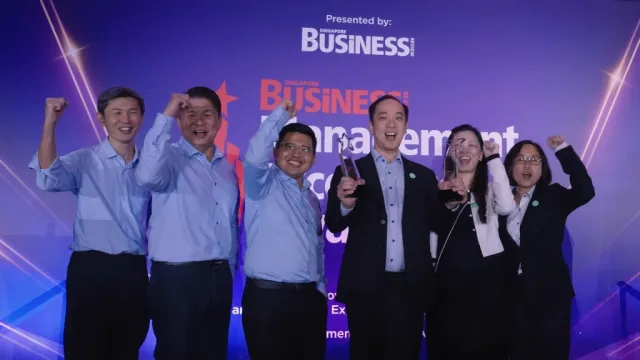Published:
Insurance takeup still driven by long-term wealth goals, says HSBC survey
People in Hong Kong buy life insurance primarily for wealth accumulation, although
there is renewed interest in basic protection, according to a survey on Hong Kong’s
insurance market conducted by HSBC.
Twenty-seven percent of respondents bought investment-linked policies, up from 21
percent in 2007. Nearly half of new life policies (44 percent) sold in the previous 12
months were investment-linked products, up from 42 percent in 2007.
Penetration into pure and term life insurance increased to 16 percent in 2008 from 12
percent. At the same time, the number of new pure and term life policies in the last
year climbed to 18 percent, from only seven percent in 2007.
Bruno Lee, Head of Liabilities Business and Wealth Management for Personal
Financial Services in Hong Kong, said: “We believe that Hong Kong people will
continue to look to insurance for long-term savings and wealth growth despite current
market conditions. However, low interest rates, market volatility and slowing
economic growth are likely to result in a potential gap in family protection as net
worth declines and a need for more basic and affordable protection plans.”
When asked for the reasons why they bought insurance, eight in 10 respondents (79 percent)
said they bought life insurance to accumulate wealth—as part of a long-term savings,
retirement or investment plan. Seven in 10 said they bought life insurance to provide
protection for the family.
Mr. Lee added: “People need not abandon their wealth management goals as they wait
for economic conditions to normalise especially for those with a 10- to 30-year
investment horizon. Those looking to accumulate wealth long-term may find
attractive investment opportunities when the market recovers especially for those
under a monthly investment plan. Investment-linked products will continue to be
considered for long-term wealth accumulation while annuities, also designed to
address long-term savings objectives are suitable for people who want the dual
cushion of future income and protection.
Awareness of annuities remains low among Hong Kong people: only 36 percent (vs 38 percent in
2007) of respondents saying they knew about them. Only 5 percent of respondents
(vs 5 percent in 2007) have taken up annuities in 2008. Potential take-up of annuities in the
next 12 months doubled to 5 percent, from 2 percent in 2008, according to the
survey.
Self-purchased medical insurance holds steady
HSBC’s 2008 Insurance Monitor showed over half (53 percent) of respondents are covered
by self-purchased medical insurance while only one-third (33 percent) are covered by
company-purchased medical coverage.
Lee says: “The steady penetration in self-purchased medical insurance is a positive
trend especially in the current environment. The threat of losing medical coverage
due to job displacement and increasing mobility underscores the importance of
topping up existing company coverage or securing separate medical coverage.”
HSBC’s survey shows that over half of the respondents (54 percent) do not have a budget
for medical expenses in old age. This is especially true among the most vulnerable
segments – singles aged 18-29 years old (61 percent) and those aged 50-64 years old (54 percent).
Among those with a budget in mind, over 50 percent believe that medical expenses in
old age will cost over HK$1 million.
Six in 10 say they will use their savings to cover for medical expenses in old age,
while over half (52 percent) say they will rely on insurance protection. Forty-five percent
say they will use public hospitals and one-third (34 percent) will use their investments.
One-quarter will use part of the money saved from their MPF (24 percent) or seek help
from their family or children (22 percent).
However, less than a third (23 percent) of respondents feel that their current level of
medical protection will be sufficient to cover over 70 percent of their future medical
expenses, indicating that many perceive a gap in the adequacy of their medical
coverage in old age. On average, half of the respondents are willing to set aside below
HK$1,000 a month to save for medical expenses in the future.
there is renewed interest in basic protection, according to a survey on Hong Kong’s
insurance market conducted by HSBC.
Twenty-seven percent of respondents bought investment-linked policies, up from 21
percent in 2007. Nearly half of new life policies (44 percent) sold in the previous 12
months were investment-linked products, up from 42 percent in 2007.
Penetration into pure and term life insurance increased to 16 percent in 2008 from 12
percent. At the same time, the number of new pure and term life policies in the last
year climbed to 18 percent, from only seven percent in 2007.
Bruno Lee, Head of Liabilities Business and Wealth Management for Personal
Financial Services in Hong Kong, said: “We believe that Hong Kong people will
continue to look to insurance for long-term savings and wealth growth despite current
market conditions. However, low interest rates, market volatility and slowing
economic growth are likely to result in a potential gap in family protection as net
worth declines and a need for more basic and affordable protection plans.”
When asked for the reasons why they bought insurance, eight in 10 respondents (79 percent)
said they bought life insurance to accumulate wealth—as part of a long-term savings,
retirement or investment plan. Seven in 10 said they bought life insurance to provide
protection for the family.
Mr. Lee added: “People need not abandon their wealth management goals as they wait
for economic conditions to normalise especially for those with a 10- to 30-year
investment horizon. Those looking to accumulate wealth long-term may find
attractive investment opportunities when the market recovers especially for those
under a monthly investment plan. Investment-linked products will continue to be
considered for long-term wealth accumulation while annuities, also designed to
address long-term savings objectives are suitable for people who want the dual
cushion of future income and protection.
Awareness of annuities remains low among Hong Kong people: only 36 percent (vs 38 percent in
2007) of respondents saying they knew about them. Only 5 percent of respondents
(vs 5 percent in 2007) have taken up annuities in 2008. Potential take-up of annuities in the
next 12 months doubled to 5 percent, from 2 percent in 2008, according to the
survey.
Self-purchased medical insurance holds steady
HSBC’s 2008 Insurance Monitor showed over half (53 percent) of respondents are covered
by self-purchased medical insurance while only one-third (33 percent) are covered by
company-purchased medical coverage.
Lee says: “The steady penetration in self-purchased medical insurance is a positive
trend especially in the current environment. The threat of losing medical coverage
due to job displacement and increasing mobility underscores the importance of
topping up existing company coverage or securing separate medical coverage.”
HSBC’s survey shows that over half of the respondents (54 percent) do not have a budget
for medical expenses in old age. This is especially true among the most vulnerable
segments – singles aged 18-29 years old (61 percent) and those aged 50-64 years old (54 percent).
Among those with a budget in mind, over 50 percent believe that medical expenses in
old age will cost over HK$1 million.
Six in 10 say they will use their savings to cover for medical expenses in old age,
while over half (52 percent) say they will rely on insurance protection. Forty-five percent
say they will use public hospitals and one-third (34 percent) will use their investments.
One-quarter will use part of the money saved from their MPF (24 percent) or seek help
from their family or children (22 percent).
However, less than a third (23 percent) of respondents feel that their current level of
medical protection will be sufficient to cover over 70 percent of their future medical
expenses, indicating that many perceive a gap in the adequacy of their medical
coverage in old age. On average, half of the respondents are willing to set aside below
HK$1,000 a month to save for medical expenses in the future.















